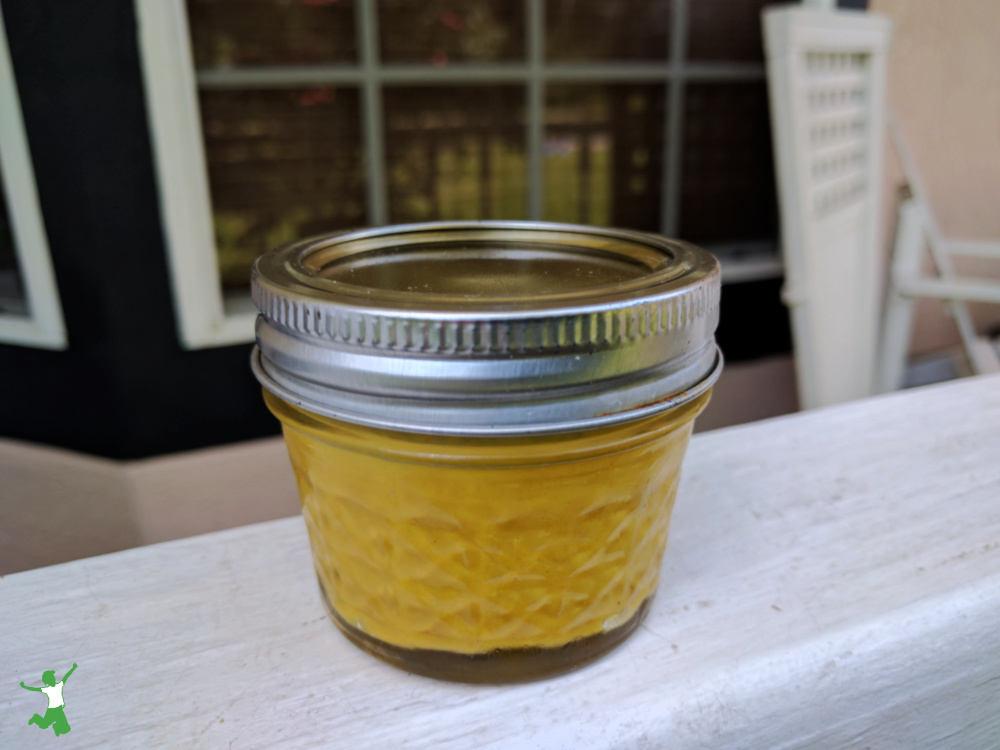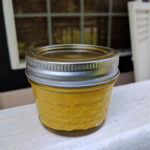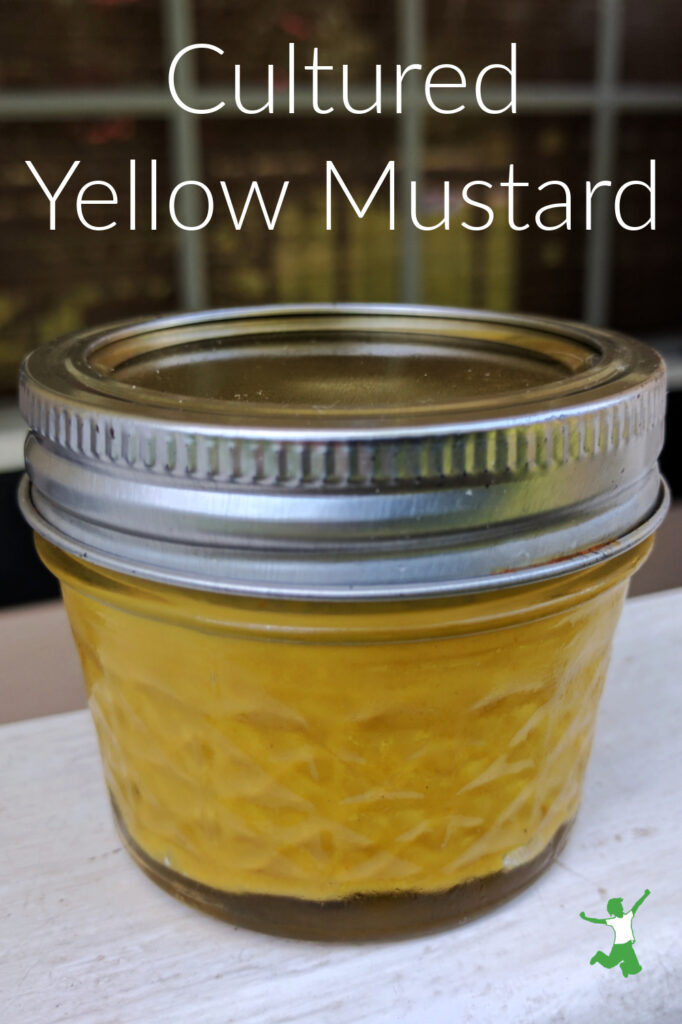Table of Contents[Hide][Show]
A simple recipe for fermented mustard, a probiotic-rich, lightly cultured condiment to facilitate the digestion of cooked foods enjoyed with it!

Mustard is an ancient spice that traditional peoples used all over the world for both culinary and medicinal purposes. No surprise then that homemade mustard is a traditional condiment as well!
In Ancient Egypt, mustard was used as respiratory therapy. Later, in the Middle Ages, healers treated asthma with this pungent, sulfurous seed.
The English physician Herberden also advised the use of mustard seed for the treatment of asthma (source: Nourishing Traditions).
The process of grinding the mustard seed releases compounds from the sugar molecule that have a strong odor and a subsequently irritating effect on any skin or mucous membranes that come in contact.
This may explain its traditional use for respiratory ailments given its almost homeopathic effect on the sinuses and lungs.
Mustard as Healthy Condiment
When used as a condiment, mustard is usually something people either very much enjoy or totally avoid. There doesn’t seem to be much middle ground when it comes to mustard!
While you can procure good quality organic mustard at the healthfood store, it is still better to make it yourself.
Homemade certainly tastes better and sits more softly in the stomach, in my opinion.
Cultured Mustard
Taking the extra step of culturing organic mustard makes it optimally nutritious too.
It is also more beneficial and potent to the respiratory and digestive systems due to the presence of beneficial probiotics.
The enzymes present in probiotic mustard also assist the digestion of any cooked foods served with it.
If you’ve never fermented condiments before, cultured yellow mustard is a good one to try first!
Feel free to play with the spices and adjust to your own personal taste if you prefer your mustard stronger or milder.
If you enjoy making your own condiments like I do, be sure to try this fermented ketchup recipe too!
Tip: This cultured mustard makes a delicious honey mustard dressing and marinade when blended with extra virgin olive oil, raw honey, and apple cider vinegar.

Fermented Yellow Mustard Recipe
A simple recipe for fermented mustard, a probiotic, cultured condiment to facilitate digestion with whatever cooked foods are enjoyed with it!
Ingredients
- 1/2 cup ground yellow mustard preferably organic
- 1/4 cup raw apple cider vinegar preferably organic; do not use pasteurized ACV
- 1/4 cup filtered water
- 1 tsp sea salt
- 1/4 tsp ground turmeric preferably organic
- 1 pinch garlic powder preferably organic
- 1 pinch paprika preferably organic
Instructions
-
Mix all ingredients well in a pint size mason jar. The texture should be as smooth and nongrainy as possible. Leave at least 1 inch at the top to avoid the risk of mold on the ferment. Screw on the lid tightly.
-
Leave on the counter at room temperature for 1-2 days. After fermentation time is complete, open the lid and stir well, close the lid tightly, and then refrigerate.
-
This homemade mustard gets thicker after fermentation and refrigeration. It also gets more yellow as time goes on. It is delicious and so much better tasting than organic mustard from the store!
-
Fermented homemade mustard will last several months refrigerated.
Recipe Notes
You may use homemade ACV instead of store bought. It is certainly cheaper to make your own!









Sarah, what brand of ACV do you currently recommend as I don’t have the bandwidth right now to make my own. The recipes of yours that I’ve tried have thus far have all been successful (and a benefit to the health of our family) so I’m excited to try this mustard!
I use the one from Azure Standard if I run out of homemade. https://www.azurestandard.com/shop/product/food/condiments/vinegar/apple-cider/pure/vinegar-raw-apple-cider-organic/11564?package=CO130&a_aid=d6064a49d1
This came out VERY watery. Does it thicken up??
It isn’t as thick as store mustard and yes it does thicken slightly in the refrigerator.
can apple cider vineger be made at home
I, too, make my own mustard…thru the grinding process…but was wondering if sprouting the mustard seeds would make a better product? Sprouting helps so much else….sprouting is my new thing….can ya tell…lol